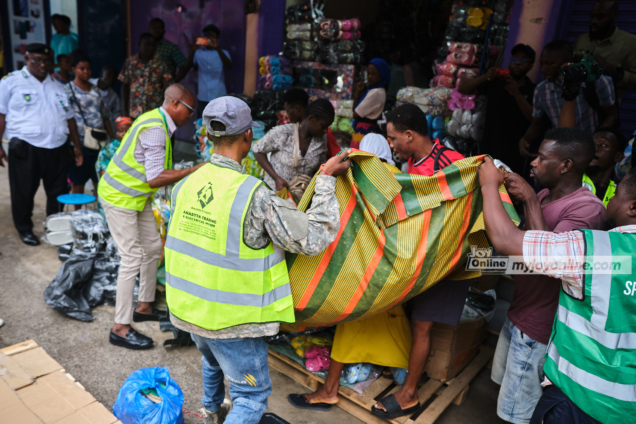By Nii Addo LAWMANN
In Ghana’s relentless effort to bring sanity to its urban spaces, decongestion exercises are among the most challenging and yet necessary undertakings by city authorities.
Local authorities across the country are increasingly called upon to reclaim public spaces overtaken by unauthorised activities, particularly street vending and trading in pedestrian zones.
Yet, a surprising and growing obstacle to these operations is not public resistance alone, but media reportage that undermines the legitimacy and necessity of these interventions.
The recent decongestion exercises undertaken in Kumasi, and more recently by the Accra Metropolitan Assembly (AMA) and the Korle Klottey Municipal Assembly, have demonstrated a troubling trend.
Journalists, rather than playing their critical role of objective reporting and public education, are at times stoking sensationalism and mischaracterising lawful enforcement as oppression.
In several instances, reporters on the ground chose not to seek clarity on the planning, stakeholder engagements, or legal frameworks guiding the exercise.
Instead, they posed leading questions to affected hawkers and encroachers — questions that painted them as victims rather than individuals acting outside the law.
One journalist asked whether officials “felt bad” for removing traders, ignoring the fact that these same traders were operating unlawfully on roads, footbridges, and pavements earmarked for public use and safety.
This framing is not neutral. It subtly shifts the narrative from one of law enforcement to one of moral indictment.
It presents a false equivalence between illegality and livelihood, and in doing so, risks cultivating public sympathy for actions that undermine civic order and endanger lives.
It must be stated unequivocally: while the economic hardships many Ghanaians face are real and deserve attention, they cannot be used to justify unlawful occupation of public space.
And the media, in its influential role, must resist the temptation to prioritise emotionally charged storytelling over balanced, fact-based journalism.
By posing questions that presuppose injustice, “Do you feel unfairly treated?” “Shouldn’t they have left you alone?” Were you informed they will be evicting you this morning”— some journalists not only blur the lines of objectivity, but also risk emboldening resistance to lawful directives.
This kind of reporting creates a sense of entitlement among encroachers, framing their removal not as enforcement of law, but as an assault on rights. The decongestion exercise is not about targeting the vulnerable.
It is about ensuring that our cities are functional, safe, and accessible to all, including school children, persons with disabilities, the elderly, and the very traders who would benefit from structured, designated market spaces. It is about long-term development, sanitation, order, and the restoration of civic pride.
City authorities are not above criticism. But that criticism must be grounded in fact, not feeling, in principle, not provocation.
As Ghana continues to urbanise, the role of the media must evolve with the nation’s development agenda. The press must ask hard questions, yes, but not loaded ones. It must challenge power, yes, but not at the expense of truth.
When headlines hinder progress, the nation is poorer for it. And when journalists abandon neutrality for narratives that inflame rather than inform, the path to urban transformation becomes longer and more painful than it ought to be.
Journalists have the power to spotlight problems, but they also have the power to distort progress. As Ghana continues its urban transformation, the media must rise to the occasion.










